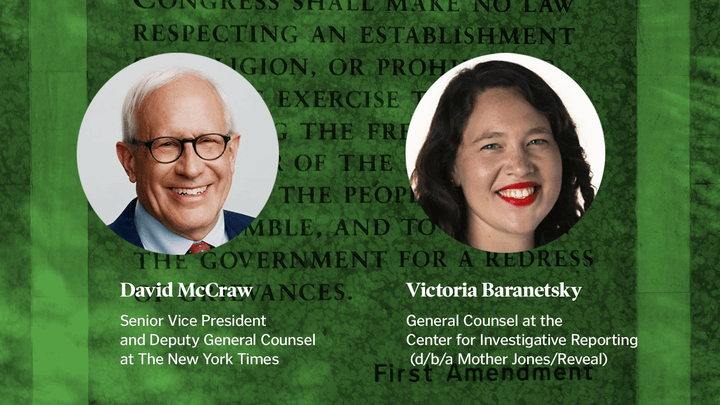Allen: How important was raising your hand to volunteer for things?
Schiller: It was everything, in the beginning of my career. … Every time something needed to be done, I said, “I’ll do it.” And I said, “Can I tag along with you? Can I help you?” I learned so much. I observed everything around me. I learned the skills. And without that, if I’d just sort of stayed in my exact job and just done the things I was supposed to do, I think I would have never had the opportunities I had.
Allen: What’s the difference between volunteering for jobs and learning to say no to things?
Schiller: It depends on what stage of your career you’re in. If you’re in the beginning of your career, you shouldn’t say no. You should say yes to everything (with a laugh) within reason. … Nothing should be beneath you, in terms of a task, when you’re first starting out. That’s how you learn. My first job was a tour guide — talk about taking care of everybody else’s problem. Everything I ever learned about how to be a producer and a leader and an executive, a lot of those foundational skills I learned from being a tour guide. And it was fun.

Allen: You have discussed being forthright (with employees) about what you don’t know. How did that work out for you?
Schiller: I’ve always been very cautious about not trying to fake things that I didn’t know. … You’re only doing yourself a disservice if somebody says, “Do you need help with this?” and you don’t take them up on that offer. Take every opportunity to learn from your colleagues, including your reports.
Allen: What are your considerations when contemplating a career change?
Schiller: I have moved around a lot. I’ve realized there are certain commonalities among the opportunities I’ve jumped at in the past and am now trying to be a little more deliberate, and those are: Is this something that’s going to be stimulating and where I’m going to learn something new? Am I going to be able to have an impact? Who are the people? I don’t want to work with people who aren’t smart, curious and who are not kind. And I really, really like to have fun.
Allen: What’s your advice to people who’ve been laid off, fired, let go, etc.?
Schiller: It’s OK to be really really bummed out. I totally get it. It sucks. But, know, KNOW, even if you don’t feel it Day One, you’re going to be just fine. The way that you see yourself, if you’ve been fired (if you’ve been laid off, it’s less so), but the way you perceive yourself is not necessarily the way the world sees you. If you made mistakes, learn from them, grow from them. And then get on with it.
Allen: What’s a creative way to give credit to underlings, and how important is it?
Schiller: It’s critical. We all want praise. I just try to put myself in their shoes. I love it when my boss praises me. I love it when I get recognition or credit. Everybody does. I don’t understand why people can’t just turn around and do that for the people that work for them. It means so much. It doesn’t have to be a standing ovation in a meeting, it’s something as little as just like a Slack or an email going, “I saw what you did there, that is just so awesome.” And giving them credit publicly in front of other people. As a boss you don’t need the credit — your people need the credit. And it will all come back to you in the end.
Allen: What did you learn from what you’ve described as your constant observations of the leaders you’ve worked for?
Schiller: What I’ve learned from organizations that work most effectively is very clear communication; clear guidance about where the organization or the department is going. Share information, give clear direction, be available, but don’t micromanage.
To apply for one of Poynter's three 2019 women’s leadership classes, click here.









